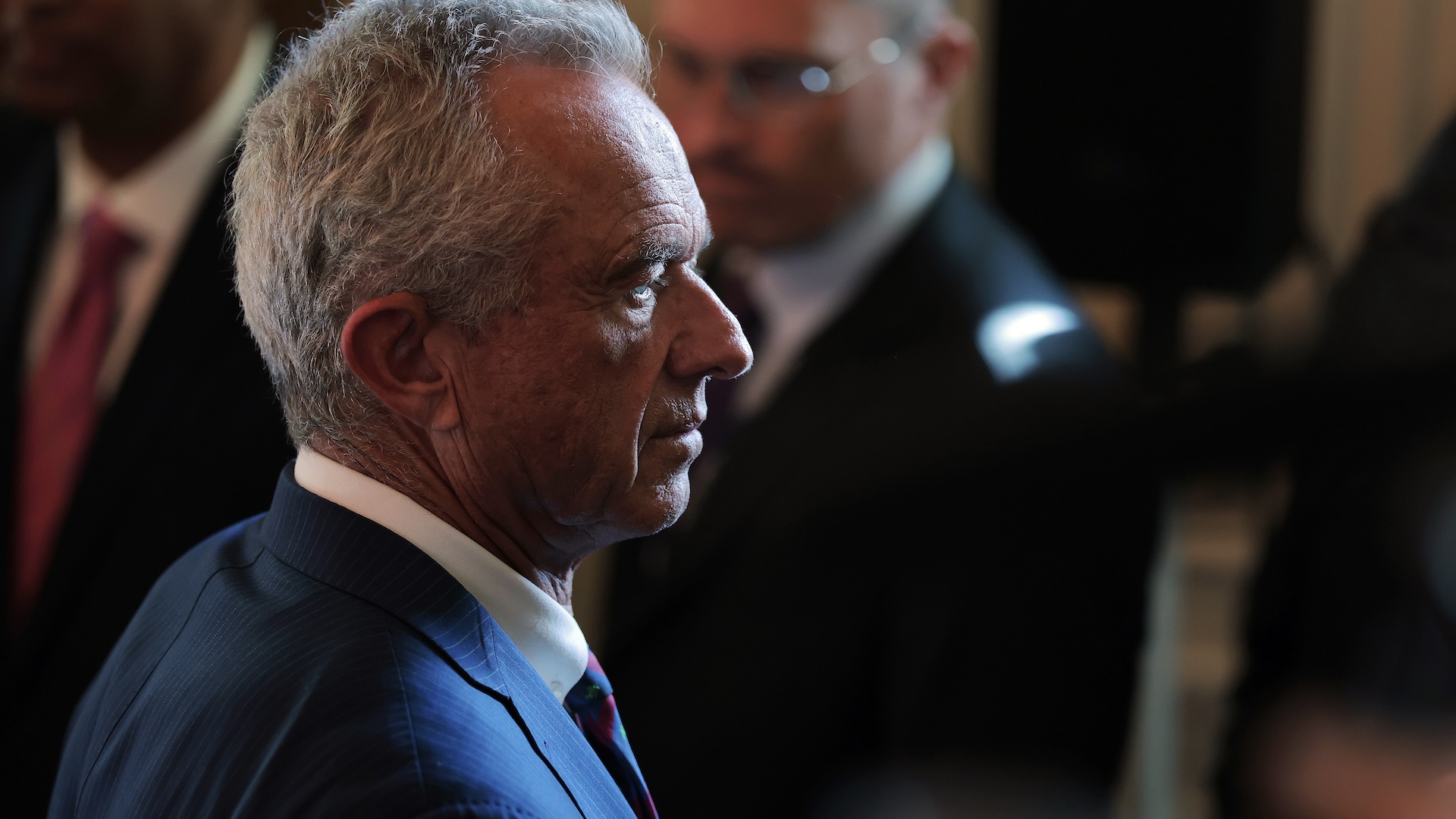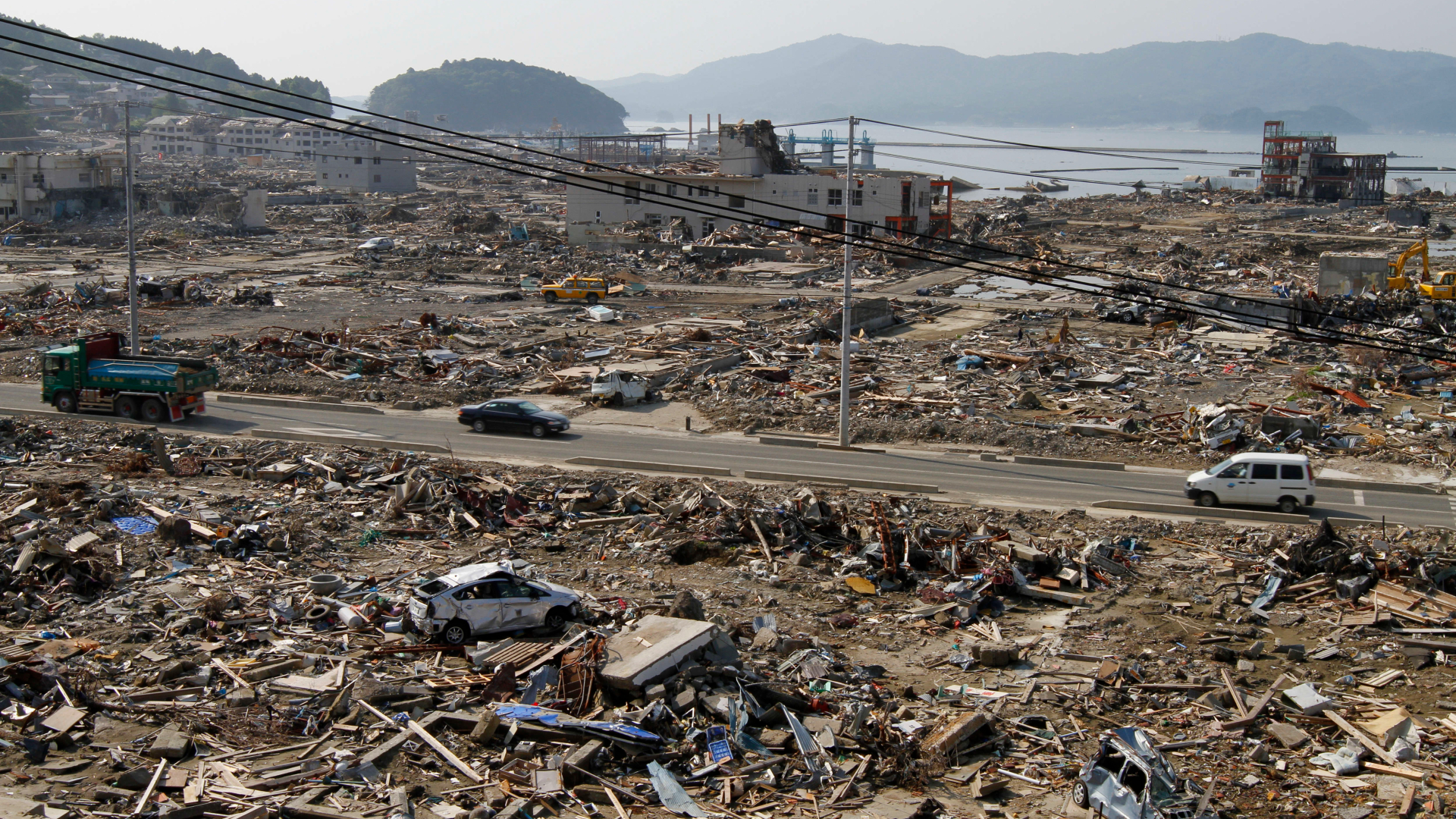'I don't know if CDC will survive, to be quite frank': Former CDC officials describe the disintegration of the agency under RFK
Three former CDC officials share their experiences at the agency leading up to their resignations.

Get the world’s most fascinating discoveries delivered straight to your inbox.
You are now subscribed
Your newsletter sign-up was successful
Want to add more newsletters?

Delivered Daily
Daily Newsletter
Sign up for the latest discoveries, groundbreaking research and fascinating breakthroughs that impact you and the wider world direct to your inbox.

Once a week
Life's Little Mysteries
Feed your curiosity with an exclusive mystery every week, solved with science and delivered direct to your inbox before it's seen anywhere else.

Once a week
How It Works
Sign up to our free science & technology newsletter for your weekly fix of fascinating articles, quick quizzes, amazing images, and more

Delivered daily
Space.com Newsletter
Breaking space news, the latest updates on rocket launches, skywatching events and more!

Once a month
Watch This Space
Sign up to our monthly entertainment newsletter to keep up with all our coverage of the latest sci-fi and space movies, tv shows, games and books.

Once a week
Night Sky This Week
Discover this week's must-see night sky events, moon phases, and stunning astrophotos. Sign up for our skywatching newsletter and explore the universe with us!
Join the club
Get full access to premium articles, exclusive features and a growing list of member rewards.
Every four to eight years, career scientists within the U.S. Centers for Disease Control and Prevention (CDC) see priorities and initiatives change as new presidential administrations take office. This is an expected and normal process that the agency is well equipped to handle. Yet the events that have unfolded at the agency this year are unprecedented, former CDC officials say.
Three former CDC leaders say that the transition to the second Trump administration ushered chaos and disorganization at the agency, and that this destabilization ultimately endangers public health. What's more, the new administration's appointees have shown a profound "disregard" for their scientists' expertise, they said during a webinar hosted by the Association of Health Care Journalists Wednesday (Nov. 19).
"I was not prepared for it to be quite as in your face, with that kind of disregard for the science and the scientists," said Dr. Daniel Jernigan, former director of the CDC's National Center for Emerging and Zoonotic Infectious Diseases.
Jernigan was joined by two of his colleagues: Dr. Debra Houry, former chief medical officer and deputy director for program and science at the CDC, and Dr. Demetre Daskalakis, former director of the CDC's National Center for Immunization and Respiratory Diseases. The trio resigned following the dismissal of CDC Director Susan Monarez in August.
In a statement released that month, Monarez's legal team said she was targeted for refusing to "rubber-stamp unscientific, reckless directives" set in motion under Health and Human Services (HHS) Secretary Robert F. Kennedy Jr. (The CDC is a division of the HHS.) After declining to resign, Monarez was fired from her position by the White House.
"We just knew if the one person that we had any hope of holding the line and protecting science and integrity at the agency was going to be gone, we were too," Houry said. "So, we actually voted, and walked out together."
"There was no strategy"
Jernigan, Houry and Daskalakis detailed their experiences at the CDC in the weeks and months following President Donald Trump's inauguration. Houry was the CDC's transition lead, meaning she helped prepare the agency for the incoming administration. "We were cautiously optimistic," she said, noting that the CDC was still able to pursue many initiatives successfully under the first Trump administration. "Unfortunately, that's not what panned out."
Get the world’s most fascinating discoveries delivered straight to your inbox.
When a major measles outbreak hit West Texas in January and persisted till fall, RFK Jr. promoted unproven alternative therapies, such as cod-liver oil and vitamin A, over vaccines, she noted. The new Department of Government Efficiency (DOGE) eliminated thousands of CDC jobs, with the earliest of the layoffs starting in February. Throughout this process, RFK Jr. did not have any face-to-face meetings with CDC staff or directors, she said.
Instead, Trump appointees had their lawyers seek out information from CDC scientists — for instance, about measles or vaccine safety, Jernigan said. "It's an approach to engaging with the staff that I just had never seen before," he said, noting that he'd been at the CDC for 31 years.
His teams were asked to provide data that were then handed over to newly hired contractors for review. Meanwhile, those contractors hadn't signed the typical confidentiality and data-use agreements that CDC staff would have, he added; that raised doubts in Jernigan about whether the data was being ethically used and shared.
Additionally, CDC staffing cuts and funding freezes seemed haphazard, rather than strategic. Following cuts, "you had the secretary come in with a set of priorities that didn't match either the staffing that he had remaining or the dollars that had been put forward," Jernigan said.
"There was no strategy," Daskalakis echoed.
In regard to vaccines, Daskalakis noted that RFK Jr. announced changes to COVID-19 vaccine recommendations via a video shared on the social media site X, but the video's content didn't match the updated language on the CDC website. And neither the X posts nor the website updates went through any of the review typically required before vaccine policy is changed. Daskalakis also expressed his concern with HHS' attempts to discredit the use of mRNA vaccines and the removal of renowned scientists from the Advisory Committee on Immunization Practices (ACIP), which advises the CDC on vaccines.
"When Susan [Monarez] was going to try to work on ACIP, I had a glimmer of hope," he said. But Monarez was then blocked from working on vaccine policy unless she got express permission from the HHS or the secretary, he said.
Amid this chaos, a man attacked the CDC's Atlanta headquarters in August, firing hundreds of rounds into buildings on the campus. He blamed the COVID-19 vaccine for mental health problems he had been experiencing.
"The secretary came to visit a few days later; that's the one time I met him," Houry said. "Later that day, he did a media interview where he said, 'Don't trust the experts.' That was not what we needed during that time." Following the shooting, the union that represents CDC workers called on the CDC and the HHS to condemn the vaccine disinformation that it said likely fueled the attack.
RFK Jr. acknowledged the shooting on X but did not condemn the inciting disinformation. Notably, RFK Jr. himself had pushed some of that disinformation, calling COVID-19 shots the "deadliest vaccines ever made."
The three former directors said that, at this point, the CDC is no longer the reliable source of health information it once was. Instead, they advised the public to look at other vetted sources of health information.
They recommended, for example, the Center for Infectious Disease Research and Policy (CIDRAP), a University of Minnesota center that recently launched a special project to share evidence-backed guidance on vaccines. Regionally, state-level partnerships, such as the West Coast Health Alliance and the Northeast Public Health Collaborative, have formed to help provide medical guidance. And professional groups, such as the American College of Obstetricians and Gynecologists and the American Academy of Pediatrics, continue to provide helpful guidance about different subspecialities of medicine.
When asked about the future of the CDC, Houry said she finds a lot of hope in the world-class scientists who remain working there. But she remains deeply concerned about the long-term prospects for the agency.
"I don't know if CDC will survive, to be quite frank, with what they're doing," Houry said.
Now, all three are trying to make a difference by calling out the issues with the current administration's policy decisions.
"The real problem, I think, was the choice of not going with science as your primary driver for policymaking," Jernigan said of the current administration. "The Secretary has really been trying to have conclusions first and figure out things later … somebody described that as going from evidence-based decision-making to decision-based evidence making."

Nicoletta Lanese is the health channel editor at Live Science and was previously a news editor and staff writer at the site. She holds a graduate certificate in science communication from UC Santa Cruz and degrees in neuroscience and dance from the University of Florida. Her work has appeared in The Scientist, Science News, the Mercury News, Mongabay and Stanford Medicine Magazine, among other outlets. Based in NYC, she also remains heavily involved in dance and performs in local choreographers' work.
 Live Science Plus
Live Science Plus










